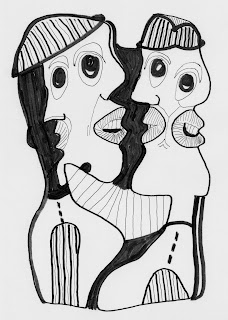[Ian the interviewer and William the witness chat about the joys of being non-egoic.]
Ian: “You said earlier that the goal/reward is being non-egoic and that this involves being in the present moment. Would you like to expand on that?
William: Thanks for asking. There are at least three ideas. The first is ‘being non-egoic’. This is captured in the Zen saying, ‘no-self, no problem’. When athletes are in the zone and musicians are in the groove there is an altered state of consciousness. It is captured in Csikszentmihalyi’s concept of ‘flow’. There is also the concept of ‘everyday Zen’ and the potentially mystical experience that can be achieved while washing the dishes or cleaning the toilet.
Ian: This presumably links to what you earlier noted as doing things with grace rather than with a grudge.
William: Exactly. What matters is not the activity itself but rather the state of consciousness you are in while engaged with it.
Ian: The secret is ‘being in the present moment’.
William: Spot on. Most people most of the time suffer from ‘monkey mind’ which involves ‘attention’ veering off into knowledge, feelings and moods (KFM) about ‘me’ in the past or future. Concentration loses track, time is wasted, and the overall mood tends to being unsettled, unsatisfactory and uneasy.
Ian: That is where being in the ‘present moment’ comes in.
William: Quite so. The mindbrain can be tuned into the past via the memory circuits, and into the future via the speculation and planning circuits. Part of the tuning in involves using language and thus evoking the ‘I’ illusion with its negativity bias. Our mindbrains evolved to monitor the social and physical environment and to react and respond to change. And where there are choice points the pessimistic perspective has the greater survival value.
Ian: On the other hand, if an athlete’s mindbrain dithers in the past or future, she will not perform as well as if her mindbrain is with the non-egoic present moment.
William: There is another Zen saying, ‘present moment, wonderful moment’. It happens when you ‘drop off body and mind’ and ‘just sit’. For whatever reason, the human mindbrain is capable of an untroubled, peaceful numinosity. While it is happening there is no ‘I’ to register what is going on but, in retrospect, there are many subjective reports of ‘transcendence’, enlightenment, and great peace.
Ian: Your third idea is presumably ‘goal/reward’.
William: There is a catch 22 when an ego sets the goal of being non-egoic. I want to see through the illusion of I and thus be a non-toxic member of my community. If, for the sake of having a starting point, ‘you’ aspire ‘as if’ the ego was real there can be a suspension of belief until the understanding of reality deepens. Language is a poor tool for dealing with these kinds of thing!
Ian: Lao Tzu reckoned that ‘the reality that can be described is not the real reality’
William: Yes but the reward can deliver itself when washing the dishes. Everyday Zen can be intuited on a level beyond words. There is no need for the intellect and its words - they normally get in the way.

No comments:
Post a Comment